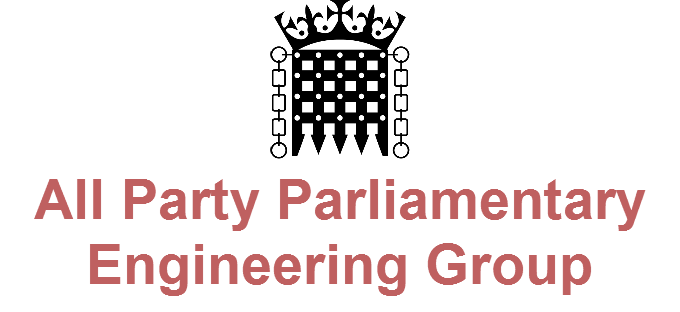The All-Party Parliamentary Group for Engineering
16 June 2021
A digital environment that encourages innovators to build safe products
Discussion over Zoom
Chair – Professor the Lord Broers
Speakers:
- Professor Sir Andrew Hopper – Treasurer and Vice-President of the Royal Society and Professor of Computer Technology at the University of Cambridge.
- Professor Alastair Beresford, Professor of Computer Security, Queens College Cambridge
Lord Broers began the meeting by thanking everyone for attending and introduced the first of the distinguished speakers, Professor Sir Andrew Hopper.
Professor Sir Andrew Hopper
Professor Sir Andrew Hopper is Treasurer and Vice-President of the Royal Society and Professor of Computer Technology at the University of Cambridge. His research interests include computer systems, sensor-driven and location-aware computing, and using computer technology for sustainability of the planet. He is a Fellow of the Royal Academy of Engineering (1996) and of the Royal Society (2006). He was made a CBE for services to the computer industry (2007) and was knighted in the Queen’s Birthday Honours in 2021. In his commercial career, Professor Sir Andrew has founded thirteen start-ups, three of which floated on the stock markets. The companies he co-founded have received numerous Queen’s Awards for Enterprise and he is currently Chairman of RealVNC Group and lowRISC CIC.
Professor Sir Andrew offered some forward-thinking ideas on the topic. Sir Andrew noted the difficulties of large companies and monopolies dominating platforms. His framework gives an incentive to smaller companies to innovate in a safe and secure way.
Programmes and data that anybody can use should be made freely available to those within the UK domain. These are building blocks, with support and documentation, that enable individuals to innovate within a corporate and legal structure. If this were to happen, there would be no regional bias and it would be available to all. In a metaphorical sense, the person building the car does not have to also build the road, which is currently the case.
Removing monopolies will accelerate innovation and remove the sales aspect of digital infrastructure. Security and quality of security will be ensured, owing to a kite mark given by digital security services. It will also be sovereign to the UK and not available outside of British domains. This could prove to be the basis of technology sovereignty. This framework also enables new business models to be produced. Professor Sir Andrew turned to the environmental possibilities of a new digital framework, and how a more streamlined process could help the UK achieve its net zero ambitions.
In an ecosystem with ten companies using the same digital commons, even if they are competing with one and other, it is in their advantage to create a better and more competitive platform. Furthermore, the Treasury should incentivise innovation more through the implementation of tax breaks and subsidies.
Professor Sir Andrew ended his remarks talking about the company of which he is Chair, lowRISC, which is successfully using the aforementioned model.
Lord Broers then welcomed the second distinguished speaker, Professor Alastair Beresford.
Professor Alastair Beresford
Alastair Beresford is Professor of Computer Security, Deputy Head of the Department of Computer Science and Technology, and the Robin Walker Fellow and Director of Studies in Computer Science at Queens’ College, University of Cambridge. His research work examines the security and privacy of large-scale distributed computer systems, often with a focus on the security and privacy of networked mobile devices, such as smartphones, tablets and laptops. He is also passionate about improving technology to support educators and learners and co-directs the tech team building and running the Isaac learning platform which has supported over 300,000 teachers and school children learning maths, physics and computer science since 2015.
Professor Beresford opened his remarks by explaining that systems already exist for sharing information (Wikipedia) and for code (GitHub), but sharing information related to humans is harder. This data does not necessarily contain direct personal information such as a name and address but could indirectly lead to sensitive personal information being identified. The Census is an example of this, in a non-digitised format. The cheap costs of computer processing means that we can share and cross-correlate data across networks but that we need to factor in the potential privacy risks.
Professor Beresford highlighted two projects that he has been working on. The first is Device Analyser, and Android app and associated server software that collects data on how individuals use their smartphones. This did not mean any one individual’s data was used or identified and has had significant benefits in research terms and for wider society.
The second project Professor Beresford is involved with works with the Cambridge Cybercrime Centre. This is looking at ‘badness’ on the internet and ways to mitigate against this. Again, this data is shared with other researchers and does not involve the sharing of any one individual’s data.
Professor Beresford ended his remarks by highlighting an example of data obtained by the New York Times, showing the precise location of 12 million devices in the US. This data can be used maliciously, by linking work and personal data to electoral registers and tax records to determine the identity of each individual. Within a digital commons, there needs to be a set of regulations that respect privacy and security principles to ensure that data is not used harmfully.
Questions and Answers
Q1 – Professor The Lord Broers
Question – What is the main benefit of this commons? Is it for researchers or for the benefit of everybody?
Answer – Professor Sir Andrew Hopper
This is mostly aimed at industry. The platform will not be accessible for everyone, there will be groups of companies using it, depending on the topic most aligned with themselves. It needs to be savvy and work in each individual domain, ensuring privacy and security properties.
Q2 – Ken Sanders
Question – How do companies protect their own intellectual property on shared platforms?
Answer – Professor Sir Andrew Hopper
Companies can keep their own intellectual property secret from competitors – this does not get shared. Furthermore, going forward, companies may start creating their own platforms, away from the digital commons.
Q3 – Ian Deane
Question – There are big opportunities in the transport sector, and I for one would be a big advocate of sharing data to improve traffic and travel.
Answer – Professor Alastair Beresford
A digital commons that allows us to bring together traffic and travel data would be very useful. Rather than providing data to one large group of companies, it would be beneficial to allow SMEs to access this data to increase innovation.
Q4 – The Lord Mair
Question – There is a difficulty with commercial digital information that companies are reluctant to give out. However, for the public good, it is in the interests of society to have this digital data. Is this something that you think can overcome and does government need to legislate to enforce the release of this information.
Answer – Professor Sir Andrew Hopper
Incentives, with a form of government legislation, is needed. It is possible to find a boundary between information that is shared for the public good and commercial information that is kept private. There are advantages for companies to share information on a public platform and companies like Google are already doing so. Investing in digital platforms can be done through the implementation of incentives, such as a reduction in rates paid of corporation tax from companies furthering the public good.
Q5 – Edward Gochman
Question – If companies are pushing data sets, how can we stop companies with the most useful data from publishing partial data sets that reduce competition?
Answer – Professor Alastair Beresford
We can lean on digital reputations and mandate companies to include digital signatures on any data they publish, so any faults or missing data items can be detected. This could then lead to sanctions.
Answer – Professor Sir Andrew Hopper
The model needs to include governance. Companies that provide faulty data would blot its copybook with other companies, the Government and the public.
Q6 – Professor The Lord Broers
Question – There are companies who want their application to be used rather than others when accessing and using data, to the extent that some disable their applications when used with others. Can this be coped with?
Answer – Professor Sir Andrew Hopper
It is all about incentives. Advantages of a common platform with companies feeding back to better the platform can already be seen from numerous examples. However, it should be noted that there is not universal trust in large companies. An intermediary organisation responsible for data sharing is needed.
Q7 – Quentin Spotterswood
Question – Once data has been collated from various sources, how is it possible to safeguard against reverse engineering and how do we protect against overly-invasive commercial behaviour?
Answer – Professor Alastair Beresford
There are technical methods we can use to guard against reverse engineering. Legal and other incentive mechanisms should not be discounted. In the transport sector, there is an opportunity for legislation to encourage companies to behave fairly, such as requiring bus companies to provide real time data as to where their buses are thereby providing a level playing field.
Q8 – Ian Deane
Question – How do we tie in with the Government’s national data strategy?
Answer – Professor Alastair Beresford
Attempts have been made to provide public data sets, with mixed success. One of the areas which is more complex is where the data cannot be shared publicly, for privacy, security, and Intellectual Property reasons, but there is huge value to the general public embedded within these data sets.
Q9 – William Milligan
Question – From my understanding, you are advocating a partnership between industry and academia, where data is shared up to the point that it becomes commercially sensitive. Is this correct?
Answer – Professor Andrew Hopper
All the components are easily available; it is not just the data but the platform that is free of charge. For example, rather than using Zoom or another video conferencing platform, the components to do this are already available and can therefore be done by anybody. It will be hard to achieve net zero without innovation such as this.
Q10 – Professor The Lord Broers
Question – I receive a lot of correspondence regarding when we will receive a comprehensive roadmap to achieving net zero. Could this help to do that?
Answer – Professor Sir Andrew Hopper
Yes of course – look at the pandemic, which facilitated innovation not too far from what we are advocating. Intellectual Property barriers were reduced and there was a higher level of collaboration. This has shown that it can be done successfully. Everything in future will include a digital component so innovation and collaboration must occur.
Q11 – Professor The Lord Broers
Question – What might this mean for young people and how can they contribute?
Answer – Professor Alastair Beresford
They can take part in several ways, such as sharing their own data. They can also start their own companies, and whilst now it can be quite capital heavy to do this, a platform like the one described could reduce this barrier to entry.
Q12 – Professor The Lord Broers
Question – How do we stop Mr Putin and others putting false data onto this system?
Answer – Professor Alastair Beresford
This comes back to an earlier point about how we authenticate the parties that are on the platforms and contribute to them. There are computer security techniques to attribute data sets or code to parties. That is not to say malice is not impossible, and foreign governments could register a UK company to slowly push the platform off course.
Answer – Professor Sir Andrew Hopper
A process like this means that there is a framework that all contributors need to follow. It could also open dialogue between states.
Professor the Lord Broers closed discussions by thanking our distinguished speakers, excellent guests and event organisers, particularly in these challenging times. It is hoped that events will return to the House of Lords as soon as guidance permits.


